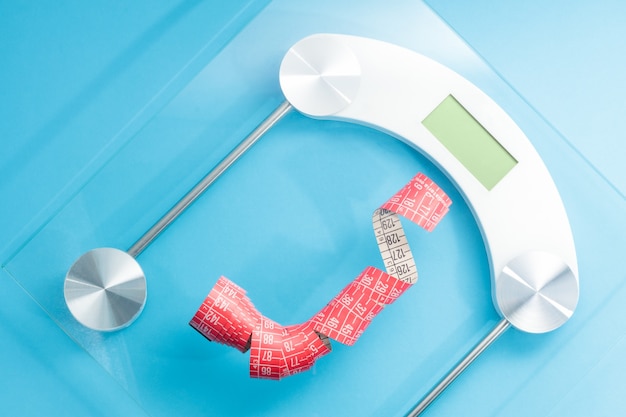Detox Diets: Unveiling the Truth About Safety and Weight Loss

Detox diets often promise rapid weight loss and overall health improvement, but their safety and effectiveness are debatable, with many potential risks and limited scientific support for long-term benefits.
Are you tempted by the allure of detox diets promising quick weight loss and a renewed sense of well-being? It’s essential to understand the facts before diving in. This article explores the truth behind these diets, examining their safety, effectiveness for weight loss, and potential risks.
Understanding Detox Diets
Detox diets have gained considerable popularity as a presumed means of eliminating toxins from the body and promoting weight loss. But what exactly are they, and how do they work?
Typically, these diets involve a period of restrictive eating, often centered around specific foods or liquids.
What Defines a Detox Diet?
A detox diet is characterized by its focus on cleansing the body and eliminating toxins through dietary changes. These diets often involve fasting, juice cleanses, or restricting certain food groups. Proponents suggest that detox diets can improve health, boost energy, and promote weight loss. However, the scientific validity of these claims is often questioned.
- Restrictive Eating: Characterized by limited food choices, often emphasizing fruits, vegetables, and liquids.
- Elimination of Food Groups: Excluding processed foods, sugars, caffeine, and alcohol.
- Short-Term Duration: Usually lasting from a few days to a few weeks.
The core idea behind detox diets is that by severely restricting certain foods, the body can focus on eliminating toxins. However, it’s important to critically assess whether these diets deliver on their promises and if they are safe for long-term use.

Are Detox Diets Safe?
The safety of detox diets is a subject that necessitates careful consideration. While some individuals may experience short-term benefits, there are potential risks to be aware of.
Evaluating the safety involves understanding the possible side effects and long-term impacts of restrictive eating.
Potential Risks and Side Effects
Detox diets, with their restrictive nature, can cause various side effects. These can range from mild discomforts to more serious health issues. It’s important to be aware of these potential risks before embarking on a detox regimen. Understanding these risks and side effects is vital for anyone considering a detox diet.
- Nutrient Deficiencies: Restricting food intake can lead to essential vitamin and mineral deficiencies.
- Dehydration: Some detox diets rely heavily on diuretics, causing dehydration.
- Fatigue and Weakness: Low calorie intake can result in fatigue, dizziness, and muscle weakness.
The long-term impact of these diets can be particularly concerning, as they may disrupt metabolism and cause imbalances within the body. Therefore, individuals with pre-existing health conditions should consult a healthcare professional before beginning any detox program.
Safety concerns are also heightened by the fact that detox products are often unregulated, leading to potential contamination or mislabeling.
Do Detox Diets Really Work for Weight Loss?
When it comes to weight loss, detox diets are often marketed as quick and easy solutions. However, the reality may not align with these claims.
Understanding whether they provide sustainable outcomes or just temporary changes is key.
The Science Behind Detox Diets and Weight Loss
Detox diets often result in initial weight loss, primarily due to calorie restriction and fluid loss. When the body consumes fewer calories than it expends, it begins to break down stored energy, leading to weight reduction. Likewise, many detox protocols increase urination and bowel movements, which contribute to rapid fluid loss. However, this initial weight loss is often not sustainable.
The problem lies in the fact that most of the weight lost during a detox diet is water weight. Once a normal diet is resumed, the body tends to replenish these fluids.
Long-Term Effectiveness
Sustainable weight loss requires a comprehensive approach that includes balanced nutrition, regular physical activity, and lifestyle modifications. Unfortunately, detox diets typically lack these components, making it difficult to maintain any weight loss achieved. Moreover, the extreme restrictions can lead to rebound weight gain, as individuals may overeat when they return to their regular eating patterns. Therefore, while detox diets may offer short-term results, they are not an effective solution for achieving and maintaining long-term weight loss.
Ultimately, relying on these diets can be counterproductive, potentially leading to unhealthy eating habits.

The Body’s Natural Detoxification System
It’s crucial to recognize that the human body is naturally equipped with its own sophisticated detoxification system. The liver, kidneys, and digestive system work together to eliminate waste and toxins.
Appreciating these natural processes can offer a more accurate view of detox diets.
How Your Liver and Kidneys Work
The liver plays a vital role in detoxifying the body by processing and breaking down toxins, converting them into less harmful substances that can be excreted. Similarly, the kidneys filter waste products from the blood, regulate fluid balance, and remove toxins through urine. These organs work continuously to maintain homeostasis and protect the body from harmful substances.
- Liver Functions: Filters blood, metabolizes drugs, and detoxifies chemicals.
- Kidney Functions: Filters waste products from the blood and regulates electrolyte balance.
- Digestive System: Eliminates solid waste and supports the elimination of toxins.
Supporting these natural processes through a balanced diet, adequate hydration, and a healthy lifestyle is far more effective and sustainable than relying on restrictive detox diets. By focusing on overall wellness, you can enhance the body’s ability to eliminate waste and toxins naturally, without the potential risks associated with extreme dietary measures.
Healthier Alternatives to Detox Diets
Rather than resorting to detox diets, adopting healthier, sustainable practices is a more effective way to support the body’s natural detoxification processes and promote overall well-being.
Sustainable approaches offer a more balanced and realistic route for improving health.
Balanced Diet
A balanced diet rich in fruits, vegetables, whole grains, and lean proteins provides the essential nutrients your body needs to function optimally. These foods support detoxification processes by providing antioxidants, fiber, and other beneficial compounds. For instance, cruciferous vegetables like broccoli and cauliflower contain compounds that support liver detoxification enzymes.
Hydration
Staying adequately hydrated is essential for overall health and detoxification. Water helps flush out waste products through urine and sweat. Aim to drink at least eight glasses of water each day, and consider incorporating hydrating foods like cucumbers and watermelon into your diet. Maintaining proper hydration can improve kidney function and support efficient waste removal.
Regular Exercise
Physical activity enhances circulation, promotes sweating, and supports the lymphatic system, which plays a crucial role in removing cellular waste. Aim for at least 150 minutes of moderate-intensity exercise each week. Activities like brisk walking, jogging, swimming, or cycling can improve your body’s ability to eliminate toxins and maintain overall health.
Making Informed Decisions About Detox Diets
Given the potential risks and limited proven benefits, it’s essential to make informed decisions about detox diets.
Consulting with healthcare professionals can provide personalized advice and ensure safety.
Consulting Healthcare Professionals
Before starting any detox diet, it is advisable to consult with a healthcare professional. A doctor or registered dietitian can assess your individual health needs and provide personalized recommendations. They can help you understand the potential risks and benefits of detox diets and suggest safer, more sustainable alternatives.
Evaluating Diet Plans
When evaluating any detox diet plan, it is crucial to scrutinize the underlying principles, safety considerations, and scientific evidence supporting its claims. Look for plans that emphasize whole foods, balanced nutrition, and gradual lifestyle changes. Be wary of plans that promise rapid weight loss or rely on restrictive eating patterns.
Focus on Long-Term Wellness
Ultimately, the best approach to supporting your body’s natural detoxification processes is to focus on long-term wellness. This involves adopting a lifestyle that includes a balanced diet, regular exercise, adequate hydration, and stress management techniques. By making these sustainable changes, you can enhance your overall health and support your body’s ability to eliminate toxins effectively and safely.
| Key Point | Brief Description |
|---|---|
| ⚠️ Risks of Detox Diets | Can lead to nutrient deficiencies, dehydration, and fatigue. |
| 📉 Weight Loss | Usually temporary; often due to water loss, not fat loss. |
| 💪 Natural Detox | Your liver and kidneys naturally detoxify your body. |
| 🍎 Healthier Alternatives | Balanced diet, hydration, and regular exercise. |
Frequently Asked Questions
▼
Detox diets typically involve severe calorie restriction, often through juice cleanses or eliminating certain food groups like processed foods, sugars, and caffeine.
▼
No, detox diets are generally not sustainable for long-term weight management as they often lead to temporary water loss and don’t promote healthy eating habits.
▼
The liver filters blood and breaks down toxins, while the kidneys filter waste and regulate fluid balance, both working continuously to remove harmful substances.
▼
Healthier alternatives include a balanced diet, adequate hydration, regular exercise, and stress management, supporting the body’s own natural detoxification processes.
▼
Yes, it is advisable to consult with a healthcare professional to assess your health needs and determine if a detox diet is safe and appropriate for you.
Conclusion
In conclusion, while detox diets may promise quick results, they often fall short in providing sustainable health benefits and can pose potential risks. A more balanced and informed approach, focusing on a healthy lifestyle, is a safer and more effective way to support your body’s natural detoxification system and achieve long-term wellness.
